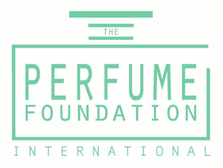|
An Interview by Creezy Courtoy, World Perfume Historian and Anthropologist The IPF Natural Perfumery Teacher's Academy is dedicated to accomplishing two vital goals: firstly, to educate enthusiasts on the art and science of natural perfumery, enabling them to transform their passion into sustainable careers; and secondly, to ensure the rich heritage of perfumery is preserved and passed on to future generations. Understanding the World Perfume History is crucial for any perfumer, not only to enrich their creations with inspired narratives but also to uphold and share this invaluable legacy. Now, let's introduce you to Vivian Trinh. Join us as we delve into her story. 1. Could you introduce yourself, including where you reside and your current occupation or activities? I am Viviane Trinh, an international independent perfumer and scent educator. I'm currently based in Ho Chi Minh city, Vietnam after years of training and working globally. My company's main focus is private R&D services, consultancy and tailored training programs for individuals and entrepreneurs. Settling down in a city that's not my homeland, with almost an opposite lifestyle compared to Hanoi - Where I was born - is a decision that requires a lot of my nerve! There are more and more people doing this, but it was definitely not something common back then! I was formally trained in Grasse focusing on the art and technique of raw materials and fragrance creation. But it was not enough to become a professional perfumer. I never stop there. For the last decade, I've been doing training and researching work with top perfumers and companies all around the world to collaborate and refine my skill. 2. Could you share why you chose to study History, particularly what inspired you? Was it a desire to learn more about the history of perfume in your region? I believe everything has a beginning. In order to master an art form, you have to truly understand it from the root. I never hate the fact that I'm almost obsessed with learning new skills and gaining new knowledge for my work as a perfumer. But funny enough, the more I try to move forward with the intention to "change", the more I realize that I'm getting back to the point where everything starts. Lots of the inspiration of our modern fragrances, including the raw material, the formula composition, the packaging or even the branding and marketing is actually nothing new but a more 'dressed up' and creative version of something that has already been done from centuries ago. Just like how we all fall in love with that homemade, fragrant herbal bath from our childhood before Chanel No.5, Shalimar and Mitsouko. Those little small scented moments are exactly the reason why I have had such a big love for perfumery since a very young age. Sometimes, I feel like no matter how much I've gained during this journey, I'm still that little girl who immersed herself in that afternoon bath, thinking about how she could get that vintage botanical dictionary from that local no-name bookstore. 3. What is the current state of natural perfumery in your country? What about its heritage? Do people still retain knowledge of their ancestral heritage? Despite the fact that our country has a rich tradition of using fragrant herbs not just for the purpose of beauty but also for medicinal and the spiritual purposes, I still find the urgent need to maintain the heritage worth considering. It's a bit painful to watch people shutting down their own garden or skipping on preparing natural scented products like tea, herbal bath, traditional medicine recipe, incense etc. because they don't have time or energy. The modern momentum of lifestyle is a challenge for people who still want to commit using the knowledge of their ancestral heritage. 4. Was the history course effective in reacquainting your country with its heritage related to perfumery? Education and creative ways of using scent is crucial to keep the heritage alive. I got all of that from the course. After joining the history program, I have a deeper understanding of not just my country's heritage related to scent, but also of a more comprehensive view about the world history of perfumery. The course gave me new knowledge about many practices that I thought I already knew by heart. It was truly a meaningful experience of reacquainting myself with my country heritage related to perfumery in a totally different way; but much more academic and professional! 5. Did you find it beneficial and necessary to take the global Perfume History Course? How did it impact you personally, and what changes have you experienced in your life as a result of this course and its certification by the International Perfume Foundation.
The course gives me extra courage to bring lots of my ideas from a shy scratch to a real product that I can proudly show my clients from time to time. That's priceless. If not to say, one of my career's bliss. It's been a very helpful course for me and it did help me so much with my career. I cannot tell you how much it helps me in my perfumery work. I'm looking forward to learning more from you and your courses in the future! I hold your certification in the highest place of my lab! I have to say that Creezy Courtoy's mentorship during the course was something out of this world. She employed incredible expertise in her teaching. But more than that, Creezy's heart-warming personality and her life-long passion for the art of perfumery was truly the biggest source of motivation for her students! My last word is: A special job requires a special mentor, and choosing Creezy's course was a game changing decision for my career. I cannot tell you enough how grateful I am.
0 Comments
The Turbulent Journey of French Perfumery Through History By Creezy Courtoy World History Perfumery Expert and Teacher Throughout history, humanity's quest to bridge the divine and the earthly realms has often been mediated through the aromatic allure of perfumes and spices. However, this journey has not been without its dark epochs, notably during periods marked by the overwhelming influence of the Catholic Church, such as the Crusades, the medieval era, and the Inquisition. These were times when the Church's supremacy overshadowed even that of monarchs, intertwining religious power with the governance of states, culminating in France's separation of Church and State only in 1905. Such dominance led to the suppression of perfumes for daily use, associating them with witchcraft or frivolous, forbidden indulgences. Despite these challenges, the evolution of perfumery, much like science, experienced moments of pause rather than a complete halt. Innovative and pragmatic individuals emerged, defying the restrictions to maintain the therapeutic application of perfumes, utilizing flowers, plants, essential oils, aromatic vinegars, and "miraculous waters." Fortunately, these periods of constraint were interspersed with eras of abundance under monarchies that valued luxury and opulence over the Church's austerity. The dominion of the Church also impeded the broader progression of the sciences, holding the Bible as the singular path to salvation and often placing it in conflict with reason. Yet within the confines of monasteries, a different story unfolded. Monks became the custodians of ancient knowledge, cultivating medicinal plants and translating the works of Galen, Aristotle, Dioscorides, and Pliny. They preserved the beauty secrets and remedies of Greek and Roman antiquity, enriching them with the synthesis of translated Arabic manuscripts. Some of these recipes bordered on the magical, using ingredients and methods dictated by the movements of celestial bodies. The School of Salerno, a beacon of medical education in the 12th century, stood out for its quality of teaching and its secular approach, contrasting with the religious orthodoxy of most Western universities of the time. It honored both Greek and Arabic medical traditions, emphasizing the balance of the body's four humors as the foundation of health. The introduction of distilled alcohol for its revitalizing properties by figures like Raymond Lulle and Arnaud de Villeneuve marked a significant advancement in pharmacy, incorporating distillation into the preparation of remedies and cosmetics.
As perfumers ascended the social ladder, the first universities in Paris, Montpellier, and Padua were established, laying the groundwork for a more structured and secular education system. However, the contrast between the ideals of Salerno and the grim realities of the "Hotels-Dieu" in the West, which were far from the medical sophistication of Arabian hospitals, highlighted the stark differences in healthcare and hygiene practices between the cultures. This journey through the history of perfumery reveals not only the enduring human fascination with fragrance but also the complex interplay between religion, science, medicine and art. It underscores the resilience of perfumery as an art form, persistently evolving and flourishing despite the shadows cast by periods of suppression and ignorance. |
Archives
April 2024
Categories
All
|
- Home
- About
- Why choosing us
- Mission
- Academicians
- IPF Certification
-
COURSES
-
MASTER CLASSES
- Teaching Methodology
- Natural Raw Material Extraction Methods >
- Natural Candle Making
- Healing Gardening
- Sustainable Oud MasterClass
- World Perfume History Master Class
- Scent Design and Formula Building >
- Fragrant Botany & Chemistry >
- Perfume Design, Concept and Storytelling
- French Natural Aromachology #1
- French Natural Aromachology #2
- Olfaction Training for Children
- Accords - Musks
- Accords - Chypre
- Accords - White Florals 1
- Accords - Fougeres and Aromatics
- FRAGRANCE DEVELOPMENT
- SPEAKERS
- EXHIBITIONS
- Partners
- Blog
- Contact
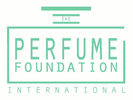
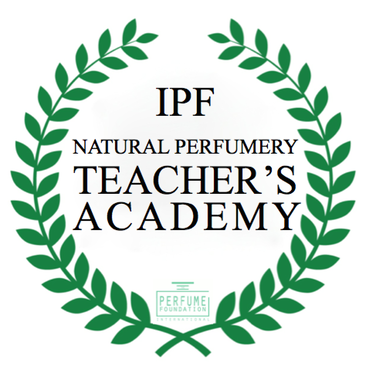
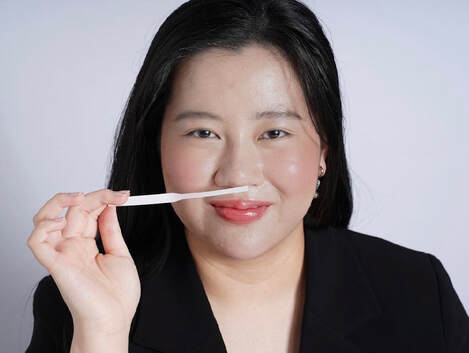
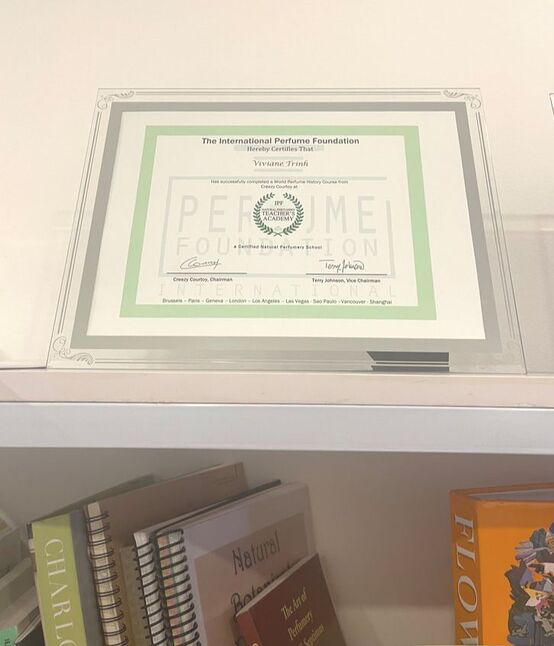
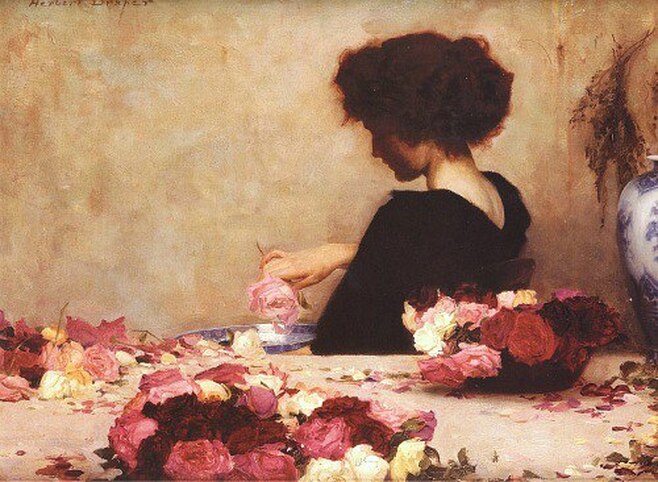
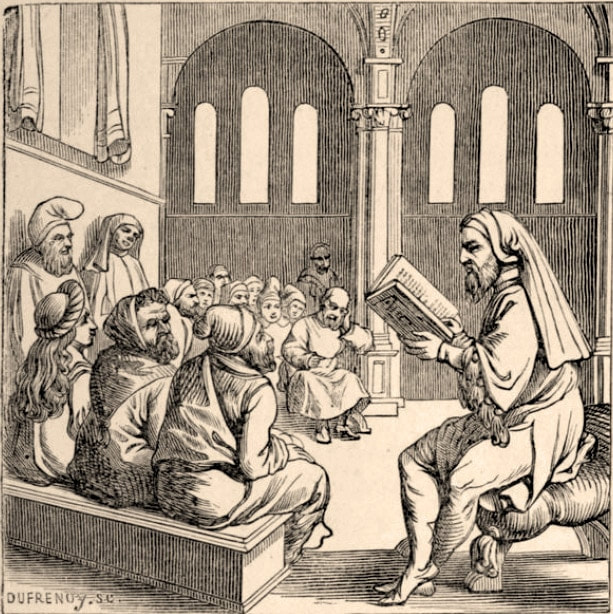
 RSS Feed
RSS Feed
